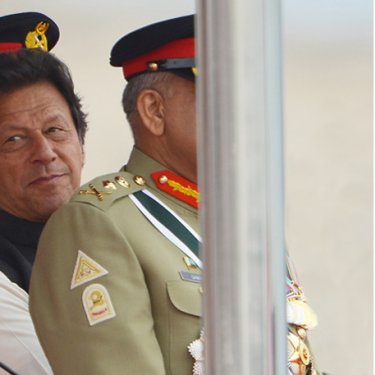Two Pakistani Shia journalists abducted two days apart in Karachi

Reporters Without Borders (RSF) calls for independent investigations into the abductions of two Pakistani journalists in the space of two days in the southern city of Karachi in which members of the security forces were complicit. The journalists must be found quickly and their abductors must be prosecuted, RSF said.
The first victim was Daily Jang reporter Matloob Hussain Mosavi, who was abducted from his Karachi home at dawn on 30 March by a group of masked men in civilian dress, who came in unmarked vehicles accompanied by three police cars. The family has had no news of him since then.
“We have not been told for what crime Matloob was picked up,” his brother, Minhaj, told RSF. “The way he was taken away makes it look as though he was a terrorist but he was not a terrorist.”
Asked if his 27-year-old brother could have been kidnapped in connection with his work, Minhaj said he could not rule it out because the comments his brother posted on social networks might have annoyed some people.
“He is progressive young man” and he had told his father that, “something is going to happen,” Minhaj said. Mosavi’s family are members of Pakistan’s Shia minority.
The second victim was Aab Takk News TV cameraman Syed Ali Mubashir Naqvi, who was abducted in a similar manner from the TV channel’s parking lot in Karachi on the evening of 1 April, his colleagues confirmed to RSF. Disturbingly, he is also a member of the Shia minority.
“Designed to intimidate”
“We call on the Pakistani authorities to shed all possible light on these two disappearances which are disturbing, to say the least, and have the hallmarks of an operation designed to intimidate,” said Daniel Bastard, the head of RSF’s Asia-Pacific desk.
“The modus operandi, the proximity in time, and the identity of the abducted journalists suggest that the members of the security forces were behind these kidnappings, which violated all judicial procedures. It is up to the Pakistani government to show that the country is still governed by the rule of law.”
Currently dependent on investments of Saudi origin, Prime Minister Imran Khan’s government is bending over backwards to curry favour with Riyadh. As RSF reported, the interior minister ordered “investigations” last month into six Pakistani journalists who had the impertinence to repeatedly post photos of Jamal Khashoggi, the Saudi journalist who was murdered last October.
It cannot be ruled out that, in the journalists it intimidates, the Pakistani establishment is now trying to reflect Riyadh’s constant anti-Shia rhetoric.
Five Pakistani journalists critical of Islamist fundamentalism were mysteriously abducted in the space of a few days in January 2017, tortured while held captive, and finally released after several weeks. One of them, Ahmed Waqas Goraya, who has found a refuge in the Netherlands, says the intelligence services kidnapped them with the aim of intimidating online dissidents.
A year later, in January 2018, the well-known journalist Taha Siddiqui narrowly escaped an abduction attempt that was probably orchestrated by the military establishment.
Pakistan is ranked 139th out of 180 countries in RSF’s 2018 World Press Freedom Index.



